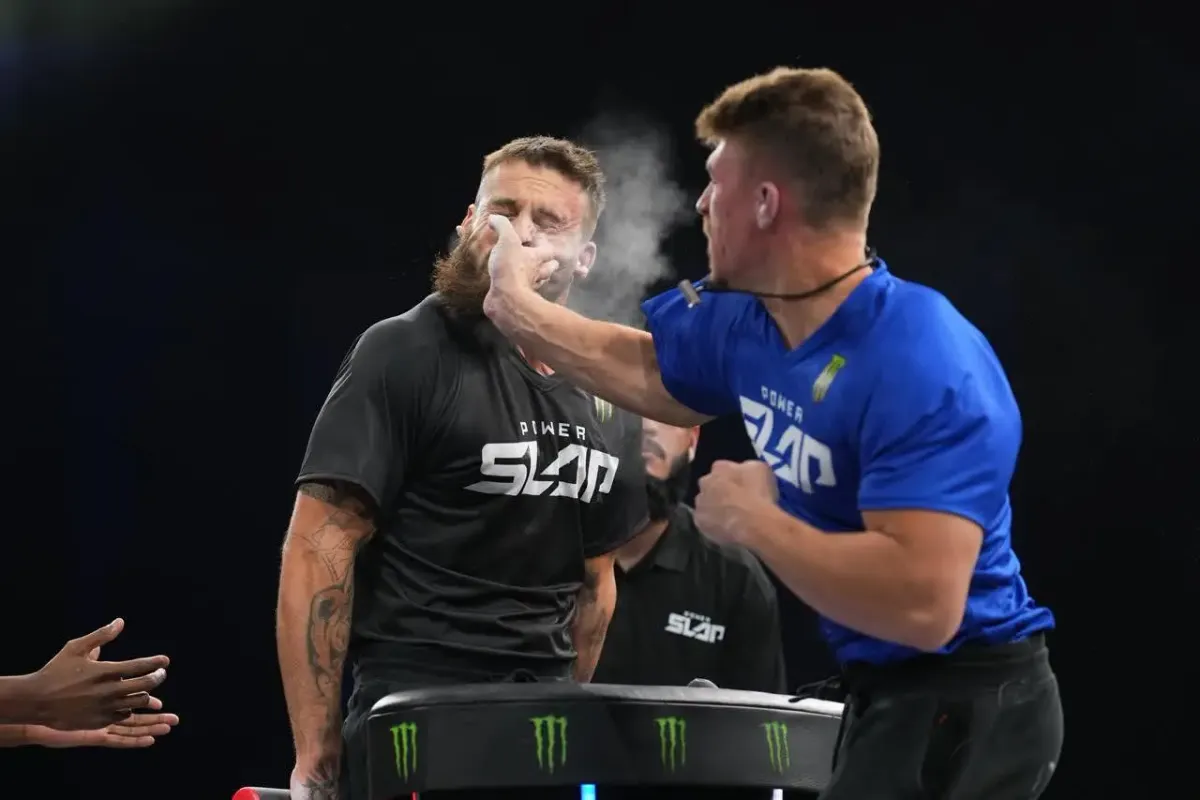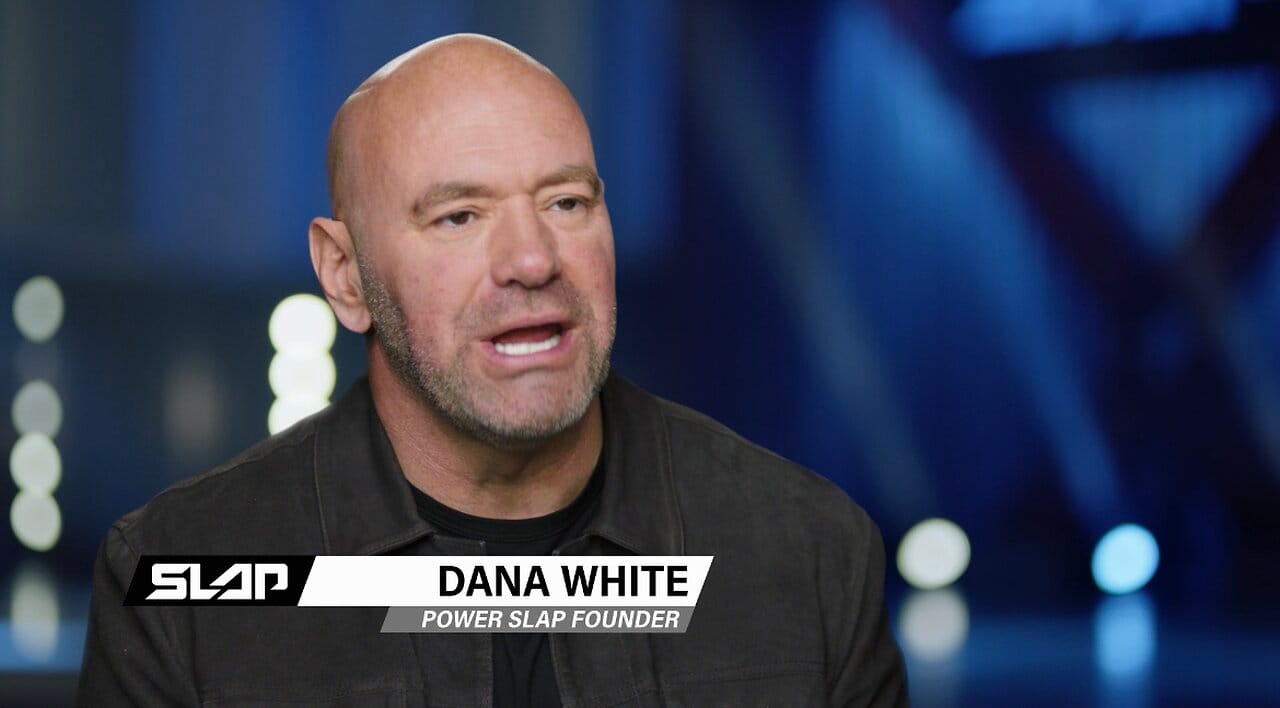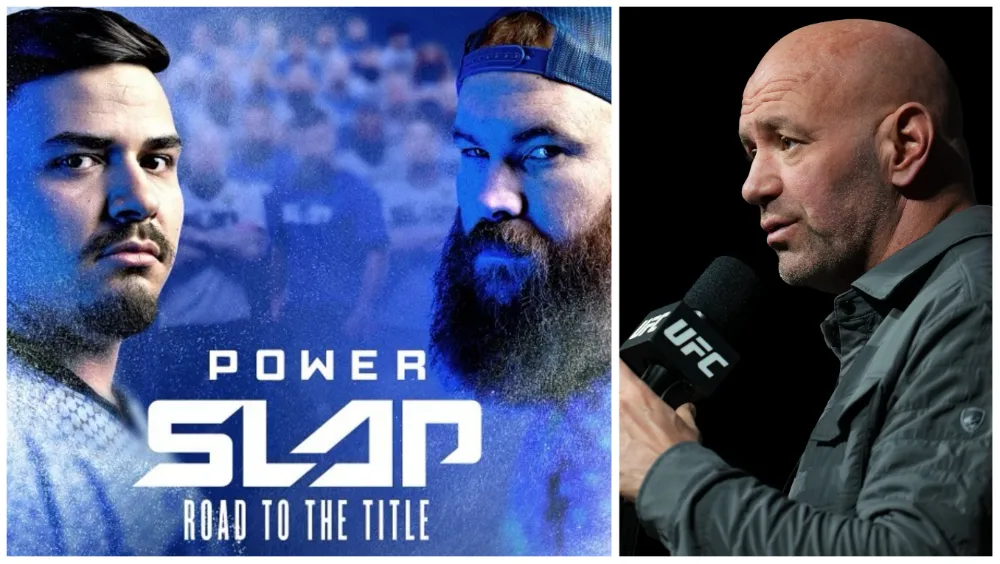Power Slap: The Controversial Rise of Dana White's Slap Fighting League
The concept is simple: two competitors take turns delivering open-handed slaps to each other's faces, with most bouts lasting 3-5 rounds.

A new player has emerged in the world of combat sports and it's causing quite a stir. Power Slap, a slap fighting league founded by UFC president Dana White in 2022, has quickly gained attention for its unique format, viral popularity, and controversial nature. As the league continues to grow, it faces scrutiny over safety concerns and fighter pay, raising questions about its long-term viability in the sports entertainment industry.
The Origins and Format of Power Slap
Slap fighting, a sport that originated in Eastern Europe, gained popularity through viral videos in the late 2010s. The concept is simple: two competitors take turns delivering open-handed slaps to each other's faces, with most bouts lasting 3-5 rounds. The catch? The fighter on the receiving end can't flinch or defend themselves when being slapped.
Video: Power Slap 5 KO's
Power Slap has taken this concept and turned it into a professional league, complete with rules and high production values. Fights are scored on a 10-point must system, similar to boxing and MMA, with judging based on the effectiveness of the slap and the defender's reaction and recovery time. The league aims to bring the sport into the mainstream and convert viewers into dedicated fans.
The Backing of Dana White and the UFC
One of the key factors in Power Slap's rapid rise is the involvement of Dana White and the UFC. White, who founded the league after seeing the popularity of slap fighting videos online, believed that a professional league could be successful. The UFC's parent company is also involved, although they are currently facing a lawsuit alleging they take an inordinate share of profits from Power Slap.
To help promote the new league, Power Slap has been integrated into UFC event programming, leveraging the popularity of UFC fighters to cross-promote the sport. This has helped expose Power Slap to a wider audience and generate interest among combat sports fans.

Television Deal and Viral Popularity
In 2023, Power Slap made its television debut with the reality show Power Slap: Road to the Title on TBS. However, the premiere faced a setback when it was delayed after White was filmed slapping his wife. When the show finally aired, it struggled to attract viewers, drawing around 250,000 viewers compared to the 1 million viewers of its lead-in programming, AEW wrestling. As a result, TBS declined to renew the show for a second season.
Despite the lackluster television performance, Power Slap has found success on social media. White claims that some videos have over 100 million views on TikTok, and Power Slap content generates an average of over 10 million Instagram views per post. The viral nature of the sport has helped it gain traction and attract a younger audience.
Safety Concerns and Controversies
As Power Slap has grown, it has faced significant criticism from medical professionals who warn about the dangers of slap fighting. Doctors and brain injury experts have equated the sport to "glorified brain injury," arguing that the force of undefended slaps can cause lasting neurological damage.
White has defended the safety of Power Slap, pointing out that doctors and ambulances are present at events and that fighters take fewer blows per bout compared to boxing or MMA. However, critics maintain that the force of the slaps, combined with the lack of defense, makes the sport inherently dangerous.
The Nevada State Athletic Commission has also faced criticism for sanctioning Power Slap with minimal regulation. In response to the backlash, the commission amended the rules to better define legal slaps and minimize injury risk. Despite these changes, concerns about the long-term health effects of slap fighting persist.

Fighter Pay Controversy
In addition to safety concerns, Power Slap has faced controversy over low fighter pay. Reports suggest that contestants make around $2,000 to show up and an additional $2,000 if they win, which is significantly lower than the pay for entry-level UFC fighters.
White has defended the pay structure, arguing that it is comparable to boxing undercards and early UFC events. However, critics maintain that the pay is exploitative, especially given the health risks associated with the sport.
The Future of Power Slap
As Power Slap continues to grow and attract attention, it faces a crucial juncture. The league must address the safety concerns raised by medical professionals and ensure that proper regulations and protocols are in place to protect fighters. Additionally, the issue of fighter pay will likely remain a point of contention, and the league may need to reevaluate its compensation structure to ensure fairness and sustainability.

Despite these challenges, Power Slap has demonstrated its ability to generate buzz and engage audiences, particularly on social media. The league's viral popularity and association with the UFC have helped it gain a foothold in the combat sports world. However, to establish itself as a legitimate and long-lasting sport, Power Slap must navigate the controversies surrounding it and prioritize the well-being of its athletes.
The rise of Power Slap has been rapid and controversial, sparking debates about the future of combat sports and the responsibilities of leagues and promoters. As the sport continues to evolve, it will be crucial for Power Slap to address the concerns of critics and fans alike, ensuring that the league can grow and thrive while prioritizing the safety and fair treatment of its fighters.
Only time will tell if Power Slap can overcome the challenges it faces and establish itself as a mainstream sport. As the league continues to attract attention and generate discussion, it has the potential to shape the future of combat sports and entertainment. However, it must do so responsibly, with a commitment to the well-being of its athletes and the integrity of the sport.




